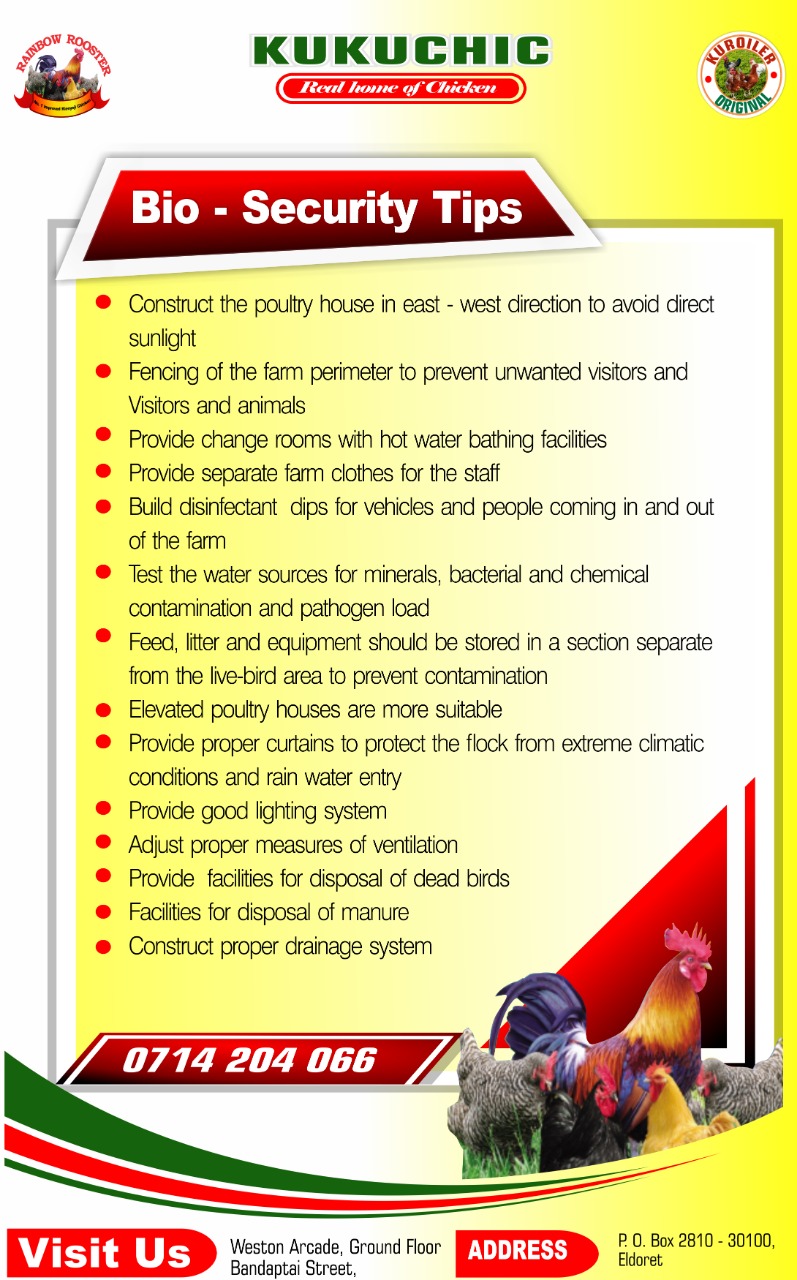Implementing biosecurity on a poultry operation can prevent the introduction and spread of infectious diseases, including Avian Influenza. The biosecurity resources below are based on the Checklist for Self? Assessment of Implementing Poultry Biosecurity, which reflects the items included in the Standard E Biosecurity Principles within the National Poultry Improvement Plan, or NPIP, Official Program Standards.
BIOSECURITY IN POULTRY
Biosecurity refers to the measures and methods adopted to secure a disease-free environment for the profitability of the farm. It is reducing the chances of infection agents from coming into contact with poultry thus protecting the flock from infectious agents such as bacteria, fungi, viruses, parasites.
AIMS:
Prevention of the entry of the pathogenic organism into poultry premises.
Reduction of microbial contamination of the surrounding area.
Total elimination of the pathogenic organisms presents within the premises.
BENEFITS OF BIOSECURITY INCLUDE:
Help keep out diseases
Reduces the risks
Limits the spread of disease
Improves overall health of the flock
Reduces mortality losses
Improves profitability
EXAMPLES OF BIOSECURITY MEASURES\
|
No |
Bio Security Objective |
Recommended Actions |
|
1 |
Keep wild birds away from your chicken |
|
|
2 |
Ensure clean water supply |
|
|
3 |
Keep feed secure |
|
|
4 |
In the case of free range birds
|
|
|
5 |
Don’t bring infection onto your property
|
|
|
6 |
Be vigilant |
|
|
7 |
Proper disposal of birds
|
|
|
8 |
Maintain facilities
|
|
|
9 |
Good hygiene facilities.
|
|
|
10 |
Vehicles entering the farm |
spray with disinfectants |
|
|
Footbath |
place footbath at the entrance of every poultry farm and it should have dissinfectant |
If you observe unusual disease symptoms or unexpected deaths call your vet
